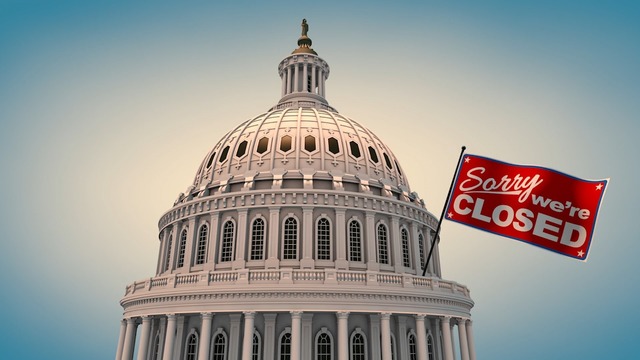The U.S. House and the Senate both voted on Thursday, Feb. 14 to approve a spending deal to avoid yet another shutdown. The Senate voted earlier in the day and approved the deal with a majority 83 votes for and 16 against the deal. The House voted later in the day with a majority approval of 300 to 128 votes. The bill, providing $1.375 billion for a physical barrier along the U.S.-Mexico border, has passed through Congress and was sent on its way to President Donald Trump, who signed the bill and declared a national emergency at the border on Friday, Feb. 15.
The approval of this bill comes after the longest government shutdown in U.S. history. The government shut down on Dec. 22 after President Donald Trump and Democrat members of Congress hit a stalemate over the president’s demand for $5 billion to build a wall on the U.S.-Mexico border, a major proponent he ran on in his 2016 campaign for presidency.
During a government shutdown, non-excepted (unessential is the term used in other fields) employees of federal agencies are granted a leave of absence during a shutdown. Excepted employees remain at work. Excepted (essential is the term used in other fields) employees are those whose duties demand the conservation of property, the safety of human life and any other roles deemed necessary to continue by their agencies. However, both non-excepted and excepted federal workers are not paid during a shutdown. Non-excepted workers during a government shutdown are not to work during a shutdown, even on a volunteer basis.
About 800,000 federal employees were affected by the government shutdown. These employees are in the nine Cabinet departments and various different federal agencies. Of the 800,000, about 380,000 were initially furloughed and the rest were working without pay. Employees who stay on the job are guaranteed to be paid after the shutdown. President Donald Trump passed a bill to supply back-pay for government workers that were furloughed.
The argument of many Democrats to vote for the bill is to prevent yet another government shutdown. Senator Bernie Sanders of Vermont strayed from the progressive leaders of the party- Sens. Kirsten Gillibrand of New York, Elizabeth Warren of Massachusetts, Kamala Harris of California, and Cory Booker of New Jersey- that voted against the bill on the basis that he “cannot turn my back on the two million federal employees and private contract workers who would be forced, again, to work without pay.”
Declaring a national emergency at the border endowed Trump to take $3.5 billion of what was budgeted for military constructions, $2.5 billion from the counternarcotics program, and $600 million from a Treasury Department asset forfeiture fund for the border. All of that money along with the $1.375 billion adds to a sum total of about $8 billion. This is considerably much more than the $5.7 billion Trump was refused from Congress earlier.
Many people are upset about the proposed wall to be built. Katherine Rodriguez, a sophomore majoring in communication sciences and disorders, said, “The government shutdown has allowed me to reflect on what the presidency signifies, in terms of how a leader acts upon such dire issues. It seems to boil down to using tantrums and rude behavior, to demand what you want. As a daughter of an immigrant parent, it’s downright frustrating to see how someone with so much power can calmly carry themselves in such an arrogant and rigid way, while immigrants and working families are suffering the consequences of his actions.”
Senior accounting major Jason Greenberg expressed, “While I see some benefits to building a wall, I see a lot of negative consequences. I am interested to see how the government will handle it and if the wall be built or not under Trump.”
Democrats in the House plan to propose legislation to block Trump’s move. The ongoing battle with what is happening at the border is far from over and only time will tell what is to happen.














